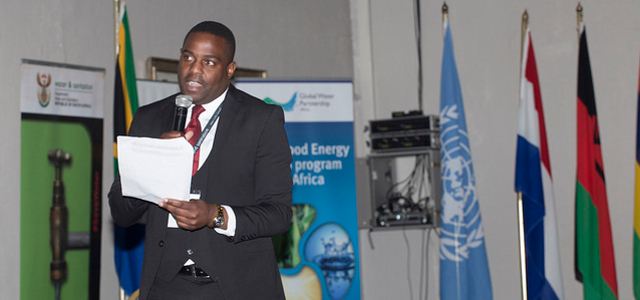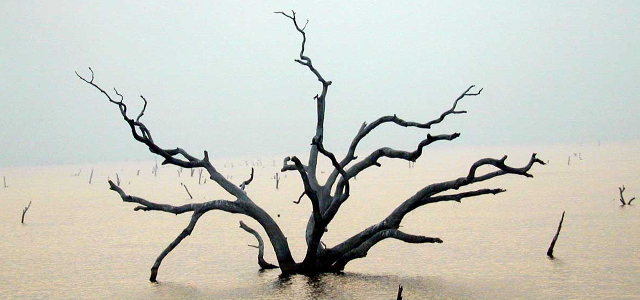“In its first phase, which was from 2011 to 2016, WACDEP performed above par, surpassing most of the set targets. The programme, which kicked off with Euro 1.5 million contributed by Austria Development Agency (ADA,) has managed to leverage over Euro 19.5 million at regional and national level. With additional funds from various financial partners, the programme mobilised funds, which exceeded the set target of Euro 12.7 million, “said Mr. Alex Simalabwi, GWP-SA Executive Secretary and Head Coordination Unit.
The remarkable performance of WACDEP in the 8 pilot countries led AMCOW to extend the programme to a further 10 African countries. The programme which was piloted in Africa, now has a geographical presence in 60 countries across four continents.
WACDEP Africa, an African Ministers’ Council on Water (AMCOW) initiative being implemented by GWP and other partners, was officially launched by AMCOW and GWP in August 2011 during the World Water Week in Stockholm, Sweden.
The programme’s main goal is to promote water as a key part of sustainable regional and national development and contribute to climate change adaptation for economic growth and human security. To achieve this goal the programme supports countries in mainstreaming water security and climate resilience in development planning and decision-making processes at regional, national and sub-national levels.
The initial phase of WACDEP was implemented in 8 African countries which are; Cameroon, Ghana, Burkina Faso, Mozambique, Zimbabwe, Burundi, Rwanda and Tunisia. Five river basins were involved and these are Volta Basin, Lake Chad, Lake Victoria-Kagera, and Limpopo Basin and the North Western Sahara Aquifer System. The programme was financed using funds raised at regional and country levels.
Mozambique was awarded Euro 4 million for its two projects; the Urban Flood Management, and Climate Resilience Strategy and Investment Framework. The Euro 3.5 million for the flood management was funded by the Africa Water Facility (AWF).
Zimbabwe was availed with Euro 3.2 million and Euro 400 000 for feasibility studies along the Save Catchment Area and strengthening early warning systems in four catchment councils, respectively.
Euro 3.5 million from AWF and New Partnership for Africa's Development- Infrastructure Project Preparation Facility (NEPAD-IPFF) went to support the Orange-Senqu River Commission (ORASECOM)in its Investment Plan and Feasibility Studies for Climate Resilient Infrastructure Projects.
The Euro 1 million from SIDA went to support Sahara and Sahel Observatory (OSS) and United Nations Economic Commission for Europe (UNECE) to finance The North-Western Sahara Aquifer System (NWSAS Project.
Cameroon, on the other hand, received from The Climate for Development in Africa (ClimDev-Africa) financial support worth Euro 400 000 for improving their information systems for local farmers.
During the period May 2011 to April 2016 WACDEP utilised EUR 12,176,670. The remaining Euro 7 million was awarded to Uganda, which is part of the WACDEP phase 2, for use in enhancing communities’ resilience to climate change through catchment based integrated management of water and related resources.

"As GWP we are proud to be involved in the preparation and mobilisation of climate change frameworks, plans and investments through the WACDEP. We vow our continual financial and non- financial support in advancing water security and climate change resilience development at all levels," highlighted Mr. Simalabwi.
Building up on the AMCOW/AU Strategic Framework for Water Security and Climate Resilient Development, GWP assisted AMCOW to develop the 2016-2025 AMCOW/AUC Priority Action Plan for Water Resources Management. Working with the United Nations Development Programme-Global Environment Facility (UNDP-GEF) GWP supported the development of National Adaptation Plans (NAPs) and appraisal techniques for adaptation plan.
Regional level interventions of WACDEP have seen GWP supporting regional economic communities (RECs) and river basin organisations (RBOs) to develop strategies, policies as well as investment frameworks for mainstreaming climate resilience into development.
Through various demonstration and innovative local actions projects, WACDEP has improved the lives of over 45,000 beneficiaries in several communities. Through WACDEP, GWP is also supporting countries in developing their National Adaptation Plans (NAP) at national and sectoral levels.
GWP intends to transfer lessons learned from WACDEP phase one to phase two which runs from 2017 2019, is being carried out in ten countries which are: Benin, Mali, Sao Tome Principe, Central Africa Republic, Kenya, Uganda, Mauritania, Tunisia, Tanzania and Zambia.
Through WACDEP, GWP, AMCOW and other stakeholders have been availed a platform to advocate for increased recognition of water in the climate change discourse and raise the profile of water in the United Nation Framework Convention on Climate Change (UNFCCC) process.
Today, water is a priority area in several developmental programmes receiving great attention by global leaders and being incorporated in development strategies and frameworks at regional, national and even, sectoral and sub national levels.
